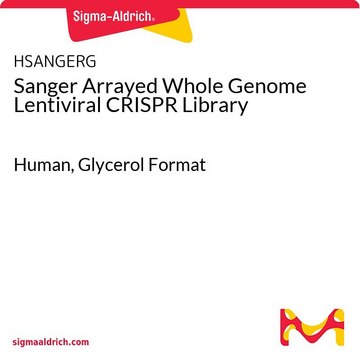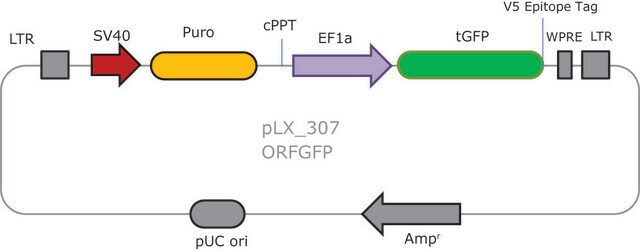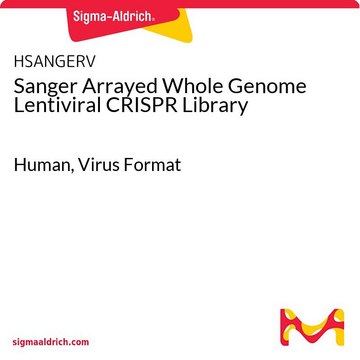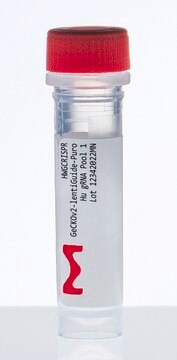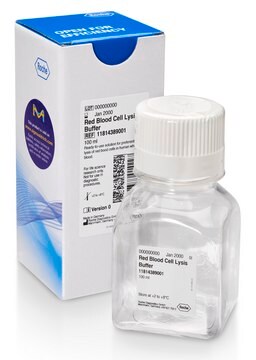MSANGERV
Sanger Arrayed Whole Genome Lentiviral CRISPR Library
Mouse, Virus Format
Synonym(e):
Arrayed CRISPR library, Sanger CRISPR library
About This Item
Empfohlene Produkte
Qualitätsniveau
Verpackung
pkg of 10 μL (384-well plate)
Konzentration
1x106 VP/ml (via p24 assay)
Anwendung(en)
CRISPR
Versandbedingung
dry ice
Lagertemp.
−70°C
Suchen Sie nach ähnlichen Produkten? Aufrufen Leitfaden zum Produktvergleich
Verwandte Kategorien
Allgemeine Beschreibung
Anwendung
Leistungsmerkmale und Vorteile
- Vector: U6-gRNA/PGK-Puro-2A-BFP (gRNA only)
- Simplify the workflow with puromycin selection
- Illuminate CRISPR-expressing cells with BFP
Additional Features
- Better, not bigger: Two optimized clones per mouse gene reduces the time, cost, and scale of screening experiments
- Ready-to-screen: Clones are arrayed in a robotics-friendly 384-well format for high throughput screening
- Collaborative: Real-time, library validation continues
For detailed information on the Sanger library, click here
Verpackung
Komponenten
Request a Quote or More Information
Physikalische Form
Sonstige Hinweise
Empfohlene Produkte
Rechtliche Hinweise
Lagerklassenschlüssel
12 - Non Combustible Liquids
WGK
WGK 3
Flammpunkt (°F)
Not applicable
Flammpunkt (°C)
Not applicable
Hier finden Sie alle aktuellen Versionen:
Analysenzertifikate (COA)
Leider sind derzeit keine COAs für dieses Produkt online verfügbar.
Wenn Sie Hilfe benötigen, wenden Sie sich bitte an Kundensupport
Besitzen Sie dieses Produkt bereits?
In der Dokumentenbibliothek finden Sie die Dokumentation zu den Produkten, die Sie kürzlich erworben haben.
Artikel
Successful targeting relies on optimizing key sensitive steps in the process, including lentiviral transduction. Below are some helpful handling and titration tips from our R&D lentiviral experts.
Protokolle
Learn about Sanger Sequencing steps or the chain termination method and how DNA sequencing works and how to read Sanger Sequencing results accurately for your research.
FACS (Fluorescence-Activated Cell Sorting) provides a method for sorting a mixed population of cells into two or more groups, one cell at a time, based on the specific light scattering and fluorescence of each cell. This method provides fast, objective, and quantitative recording of fluorescent signals from individual cells.
Unser Team von Wissenschaftlern verfügt über Erfahrung in allen Forschungsbereichen einschließlich Life Science, Materialwissenschaften, chemischer Synthese, Chromatographie, Analytik und vielen mehr..
Setzen Sie sich mit dem technischen Dienst in Verbindung.